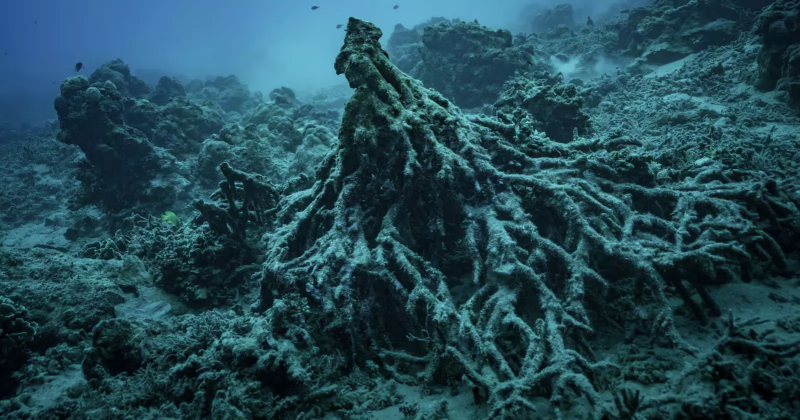- India Sees 9% Drop in Foreign Tourists as Bangladesh Visits Plunge |
- Dhaka Urges Restraint in Pakistan-Afghan War |
- Guterres Urges Action on Safe Migration Pact |
- OpenAI Raises $110B in Amazon-Led Funding |
- Puppet show enchants Children as Boi Mela comes alive on day 2 |
Vanuatu Takes Climate Battle to World Court as Seas Rise

What remains of the "Tree of Life" on Sunday, July 20, 2025, is visible off the coast of Efate Island, Vanuatu, after being toppled by cyclones in 2023 and further damaged by an earthquake in 2024.
Once vibrant and full of life, the coral reefs of Vanuatu’s Havannah Harbor now lie in ruins—destroyed by cyclones, buried under sediment, and shaken by earthquakes. For veteran diver John Warmington, the devastation is overwhelming. “We just see heartbreak,” he said.
Across the Pacific island nation, rising seas, stronger storms, and saltwater intrusion are steadily eroding coastlines and communities. Entire villages are being forced to relocate, schools have collapsed from repeated disasters, and families now bury loved ones in graveyards where the sea laps at the stones.
This week, Vanuatu has taken its climate fight to the International Court of Justice (ICJ), seeking an advisory opinion on nations’ legal responsibilities to tackle climate change. Backed by more than 130 countries, the case aims to clarify obligations and hold major polluters accountable, even though the court’s ruling will not be legally binding.
“For a country that has contributed almost nothing to global emissions, the impact is painfully real,” said village chief Amos Kalsont. “We didn’t cause this, but we’re living with it every day.”

